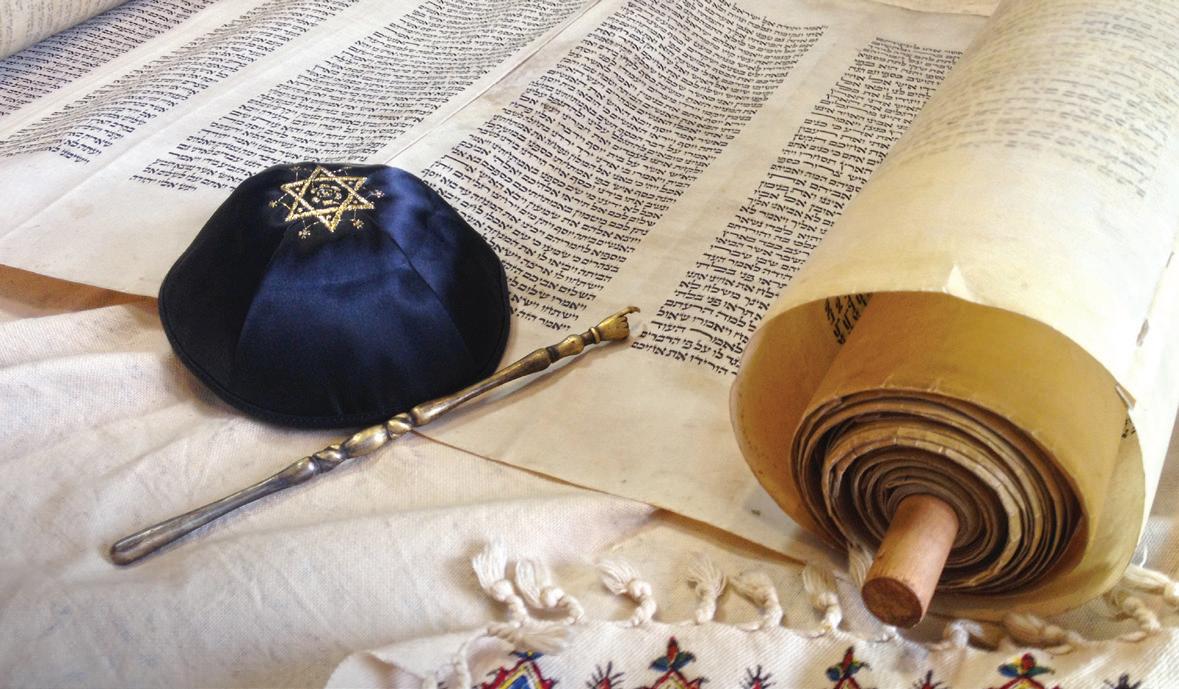
3 minute read
From Jewish Study to Jewish Life
Charlotte Jewish News September 2021
By Rabbi Beth Nichols, Director of Lifelong Jewish Learning, Temple Beth El
Throughout rabbinic literature we can find strains of a debate over which is better — study or action? One classic version of this argument is cited in the Talmud:
“Which is greater, study or action? Rabbi Tarfon answered, saying: ‘Action is greater.’ Rabbi Akiva answered, saying: ‘Study is greater.’ All the rest agreed with Akiva that study is greater than action because it leads to action.” (Babylonian Talmud Kiddushin 40b)
The opinion of the majority, “that study is greater because it leads to action,” holds deep truth for a place like Temple Beth El. When we are planning Jewish educational programming, the idea that study leads to action prompts us to think about outcomes. After all, as a religious community, we hope that the outcome of learning goes beyond acquisition of knowledge to affect actions, behaviors, and feelings. We hope that Jewish study is a part of, and leads to, Jewish living.
Rabbi Nicki Greninger, director of lifelong learning at Temple Isaiah in Lafayette, California, captures this idea in a description of its education program for children: “We do not teach subject matter for the sake of mastery of facts or progression from one grade to the next. Rather, we are trying to develop identity...” I hold on to this idea when planning education for both children and adults because Jewish study should influence how an individual lives and experiences a Jewish life.
The rabbinic debate speaks only of “action,” usually interpreted as meaning the performance of mitzvot (commandments) or specifically of mitzvot that help others. Here I have intentionally expanded my reading of this text to include “behaviors and feelings” because the impact of learning is not always visible in concrete actions but may be found internally. For example, study of our sacred texts may alter how we process experiences, how we view ourselves, or how we understand God. Each of these changes is a worthy outcome of study.
Some people might read these words and ask, “But what about Torah ‘lishma,’ study of Torah for its own sake?” I would argue that even study that does not have a defined purpose leads to the action of reflecting a person’s internal values. A person who takes time to study Torah is expressing the value of setting aside time to nourish Jewish identity or strengthen a bond with fellow learners.
This month, many of our Jewish communal institutions will offer new courses and begin new school terms. At Temple Beth El, we are gearing up for learning opportunities for all ages. In the Religious School, after the challenges of the last year, we are focusing on building community and finding joy in our Judaism. For teen learners, we are especially excited for the new year of Hebrew High, when all four of our clergy will have an opportunity to engage in important conversations with our teens.
Adult learning at Temple Beth El takes place across many programs and groups. We particularly want to highlight two new courses for this fall: “Elements of Israel” is an eight-week course taught by renowned Israel educator and tour guide Uri Feinberg. It will include an overview of the history of Zionism, the founding of the State of Israel, and the evolution of modern Israel. This course will be offered on Zoom on Sunday mornings beginning in October. “Beginning Hebrew Reading” will be offered in person on Wednesday evenings. For those interested, this course can lead to an opportunity in 2023 to celebrate adult B’nei Mitzvah. For both of these courses and other adult education opportunities, please go to templebethel.org.
May the sacred study in which we each engage lead to positive action, both external and internal.










